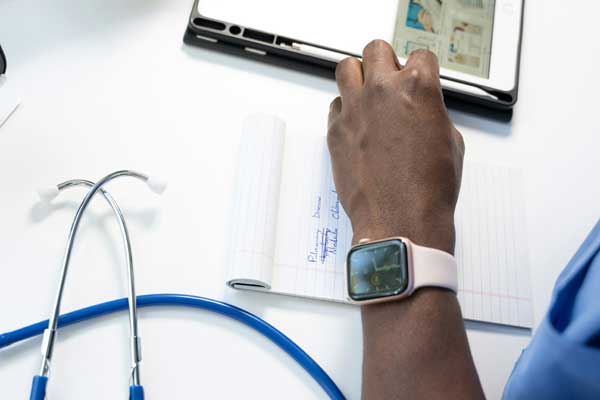The killing of UnitedHealthcare CEO exposes nationwide frustration with the US insurance industry

[A Hand Golding a Smart Watch. Photo Credit to Unsplash]
The killing of UnitedHealthcare CEO Brian Thompson has ignited nationwide discussions concerning the corruption within the US medical insurance industry.
How the shooting unfolded:
On December 4th, 2024, Brian Thompson, the chief executive of UnitedHealthcare, was fatally shot in Midtown Manhattan, New York City.
The shooting occurred around 6:45 A.M as Thompson arrived at the Hilton hotel to prepare for an investor conference, an event where major shareholders and the firm's executives gathered to discuss the firm’s annual performance and future strategies.
Security camera footage released by police shows the suspect as a man with a gray backpack, wearing a dark hooded jacket, and a mask partially concealing his face.
On December 9th, Luigi Mangione was detained in Altoona, Pennsylvania as the prime suspect of Thompson’s murder after a McDonald's employee recognized him from a photograph released by N.Y.P.D.
Mangione’s background and upbringing:
Mangione was born into a wealthy family that thrived through real estate development and investments.
Raised in Maryland, he attended the prestigious Gilman School before earning a degree in computer science from the University of Pennsylvania.
In early 2022, Mangione relocated to Honolulu, Hawaii where he resided at a “co-living” community named Surfbreak from January to June.
During this period, Mangione reportedly suffered from extreme back pain that had affected him since childhood, according to Josiah Ryan, a spokesperson for owner and founder R.J. Martin.
Mangione’s back pain disrupted his daily activities, including the time when “surfing… didn’t work out because of his back,” quoted Ryan.
Mangione eventually returned to the mainland U.S. to undergo surgery.
Responses to the shooting:
Although Mangione’s motivations for the suspected murder remain unconfirmed, many speculate his actions were fueled by his frustrations with the U.S. insurance system.
Critics pointed to evidence like the phrase “delay, deny, defend” being found inscribed in the 9mm ammunition dropped at the scene of the shooting.
Moreover, police authorities discovered a 262-word handwritten manifesto that highlighted Mangione’s direct opposition to the U.S. healthcare industry’s “corruption” and “power games.”
The murder of UnitedHealthcare CEO Brian Thompson shed light on the dysfunctions of the US health insurance industry.
The current U.S. healthcare system is notably fragmented, blending both private and public business sectors.
Due to private business’s prioritization of profit aims and their heavy reliance on utilization, the U.S. has one of the most expensive health insurance systems in the world.
In fact, according to OECD Health Statistics of 2024, the U.S. healthcare spending per capita is almost twice the average of other wealthy countries including Canada.
Another criticism leveled against private health insurance companies is that they often wield more power and control over patients’ decisions than patients themselves and doctors.
These private health insurance companies have been criticized for systematically refusing to authorize health care procedures and treatments.
They were also accused of intentionally delaying medical payment and denying claims proposed by the patient and doctor.
Health insurers such as UnitedHealthcare have become frequent targets of criticism from doctors and patients for denying claims essential to the patient’s health and making decisions for their own profit.
Despite this criticism, UnitedHealthcare recorded more than $16 billion in profit, with CEO Thompson solely receiving a total compensation of $10.2 million in 2023.
A social media movement expressing public support for Mangione quickly gained momentum.
Thousands of posts and commentaries supporting the murder of UnitedHealthcare CEO emerged to celebrate acts of revenge killings and “justified” murders.
In response to such adulation, Nsikan Akapn, the managing editor of Think Global Health has stated, “The UHC killing and the social media response stem from people feeling helpless over health coverage and income inequality.”
Furthermore, Michael Asimow, a professor at Santa Clara University School of Law, does not perceive the shooting as a surprise.
He described the incident as a result of “[Mr. Mangione] taking the law into their own hands… [and] taking action against what seems to be an intractable problem.”

- Chaehyeon An / Grade 11
- Chadwick International School

![THE HERALD STUDENT REPORTERS [US]](/assets/images/logo_student_us.png)
![THE HERALD STUDENT REPORTERS [Canada]](/assets/images/logo_student_ca.png)
